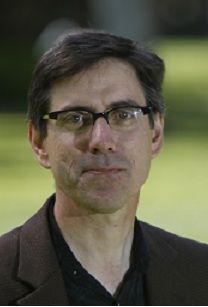
By Zachary Lerman /// Staff Writer
Recently, income inequality and social mobility are issues that have been at the center of the current presidential election, with candidates claiming that they can solve America’s ever growing income gap.
On February 18, Gregory Clark a professor of Economics at University of California Davis, gave a talk about what drives social status and mobility in the world at the annual Steinhardt Lecture, providing some clarification about what really matters for public policy. Clark is a well-known economic historian who has published A Farewell to Alms and The Son Also Rises, books about how social mobility works from an economic historian’s perspective.
Clark’s talk specifically touched on the fact that social mobility, or lack thereof, in specific societies was mostly dependent on your lineage and genetics. He showed this through multiple graphs of correlations between surnames and income over long periods of time in countries like England and Sweden. He came to the conclusion that where you come from matters a lot and that social mobility cannot be changed much by social policy. It seems that there is some underlying status that matters not just in your lifetime but even for generations after.
However, despite the fact that social mobility seems unchangeable due to its correlation with heredity and genetics, Clark stated that there still is no “such thing as a poverty trap” and that “the elite over time become average.” The only difference is that in a more mobile society, it takes less time for the poor to get rich and the rich to get poor than in a country like the United States, which as of now could take 300 years for this to occur, according to Clark’s calculations. According to Clark, America’s elite class is getting more diverse as Hindus and Muslims are becoming its new elites. This is due to America’s immigration policy of special skilled visas, which allows people from other countries with more education to immigrate easily into growing sectors of the economy like technology.
Clark’s arguments about social mobility surprised some aspiring economics students.
“[I could not believe that] family relations actually matter when it comes to social mobility,” Shogo Shinota ’19 said.
“[I’m surprised that] there is not much to be done about the rate of social mobility,” Sam Temmins ’17 said.
Overall, the talk was eye-opening and left much of the audience scratching their heads, though it also served a larger purpose as well. According to Cliff Bekar, chair of the economics department, the Steinhardt Lecture is intended to demonstrate to the community the relevance of economics.
“[The Steinhardt lecture] shows what is going on in Econ to the broader LC community and demonstrates to students the applicability of Econ to contemporary policy issues,” Bekar said. Indeed the lecture seemed to achieve this goal, as Clark brought up controversial evidence that many audience members found surprising, Overall, Clark’s talk provided students with stimulating information that can be used to inform their political decisions.
Subscribe to the Mossy Log Newsletter
Stay up to date with the goings-on at Lewis & Clark! Get the top stories or your favorite section delivered to your inbox whenever we release a new issue.

Leave a Reply